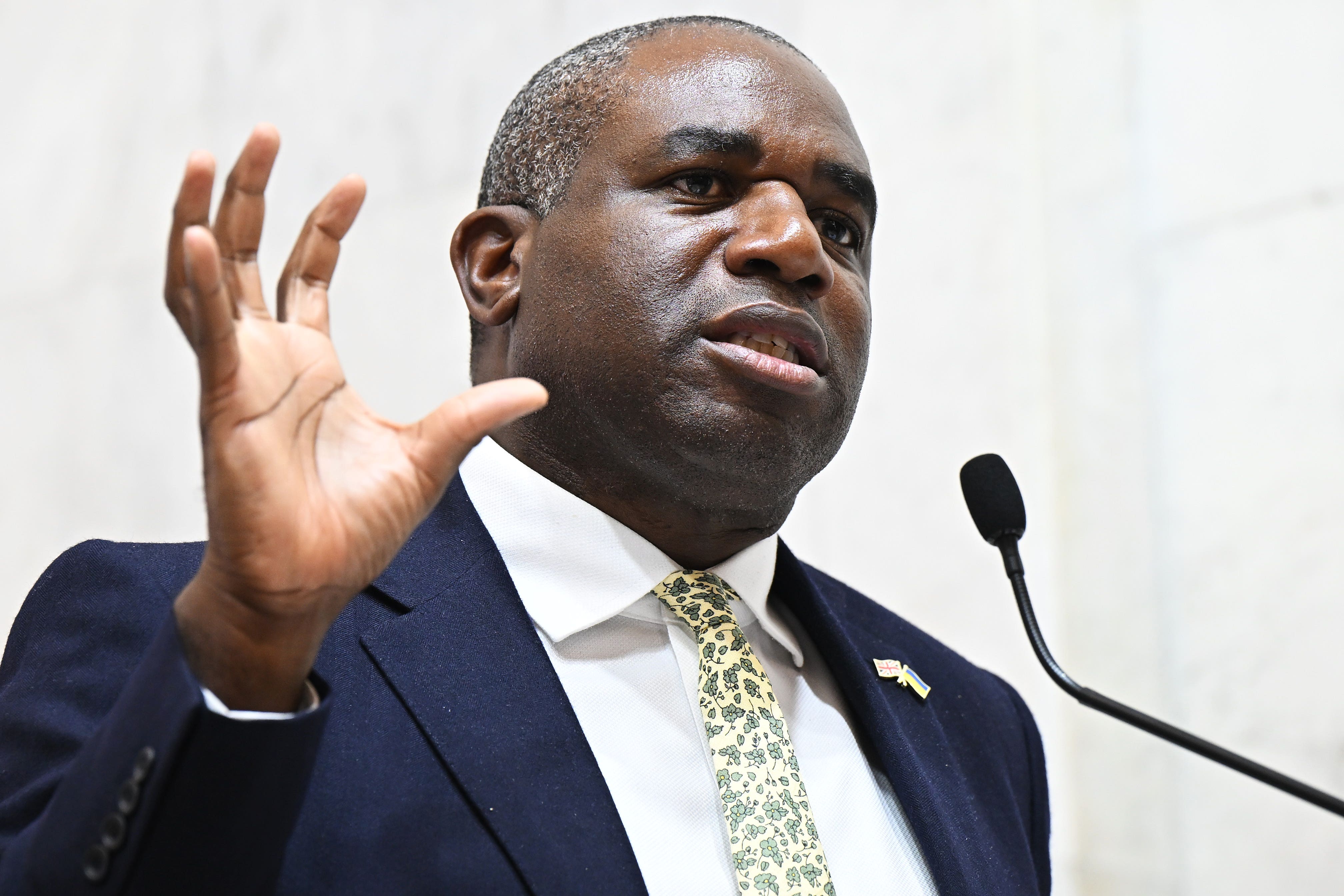Ditch Brexit trade barriers, Starmer told amid fears over impact of Trump tariffs
Exclusive: Warning from a leading trade expert comes as new projections show tariffs imposed by Trump could shrnk the UK economy over the next three years and wipeout growth ahead of the next general election
Your support helps us to tell the story
From reproductive rights to climate change to Big Tech, The Independent is on the ground when the story is developing. Whether it's investigating the financials of Elon Musk's pro-Trump PAC or producing our latest documentary, 'The A Word', which shines a light on the American women fighting for reproductive rights, we know how important it is to parse out the facts from the messaging.
At such a critical moment in US history, we need reporters on the ground. Your donation allows us to keep sending journalists to speak to both sides of the story.
The Independent is trusted by Americans across the entire political spectrum. And unlike many other quality news outlets, we choose not to lock Americans out of our reporting and analysis with paywalls. We believe quality journalism should be available to everyone, paid for by those who can afford it.
Your support makes all the difference.Keir Starmer has been warned that he must prioritise attempts to reset Britain’s relationship with the EU and unpick the trade barriers created by leaving if he wants to offset the impact of the tariffs Donald Trump has threatened to impose.
With Mr Trump re-elected to the White House and intending to impose protectionist tariffs to protect sectors of the US economy, there are fears that not only will the policy wipeout the UK’s hopes for economic growth but could see the economy shrinking.
Foreign secretary David Lammy, who has attempted to dismiss any ill feeling he may have created between the Labour government and Trump White House with his historic tweets calling the president-elect a “neo Nazi”, has also warned against US trade tariffs.
Mr Lammy told the BBC’s Newscast: “We will seek to ensure and to get across to the United States – and I believe that they would understand this – that hurting your closest allies cannot be in your medium or long-term interests, whatever the pursuit of public policy in relation to some of the problems posed by China.”

But leading trade expert David Henig, director of the UK Trade Policy Project, told The Independent that it means that Sir Keir will need to urgently press ahead with his renegotiation of Boris Johnson’s flawed Brexit deal. The talks on the UK-EU reset, led by European affairs minister Nick Thomas-Symonds, have already begun but there are fears that the Starmer government lacks ambition.
Mr Henig told The Independent: “At basic level, if Trump does anything like he says on tariffs it will damage the world economy, including the UK, and anything we can do to offset that like reducing barriers with the EU would be a good thing.”
He is sceptical of those who claim that the solution is to strike a trade deal with Trump, which he had promised in his first stint in the White House.
Mr Henig said: “I'm expecting Trump's administration to be more targeted in what they actually do [with tariffs], so not be in the firing line would be a good idea, and we certainly shouldn't be talking up the possibility of a UK/US trade deal without being very sure that this would be positive.”
His warning comes as the National Institute of Economic and Social Research (NIESR) has projected that the UK economy could shrink if Trump imooses trade tariffs with the US the UK’s biggest trade partner.

It estimates that after the Budget UK growth would be 1.2 per cent in 2025, 1.4 per cent in 2026 and 1.1 per cent in 2027. But this changes to potentially -0.8 per cent in 2025, -1.4 per cent in 2026 and -0.5 per cent in 2027. This is based on tariffs of 10 per cent.
NIESR’s principal economist Ahmet Kaya: said: “Tariffs work like a tax on consumption. They hit lower-income households the hardest because they spend more of their income on basic goods and services. Trump's proposed tariffs would be yet another shock to the UK economy.
“People in the UK would face higher prices for the products that they buy, and would have less money to spend on other goods and services. As our findings show, tariffs are often the worst solution to an economic problem, creating a lose-lose situation.”

Join our commenting forum
Join thought-provoking conversations, follow other Independent readers and see their replies
Comments